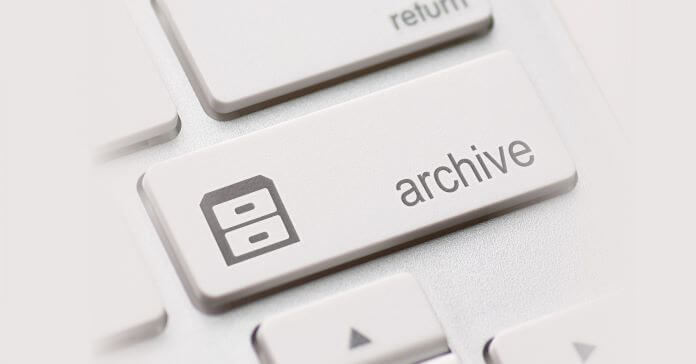Did you know the average business has to deal with around 47.81 terabytes of data? If your business is drowning in data, you might want to look into something known as ‘data archiving.’ That’s because, by using this concept, you can remove data from your systems without having to purge it permanently.
Keep reading, and you’ll learn more about how you can archive company data. If you’re dealing with lots of data, you’ll soon discover how you can get things under control.
Let’s begin!
What Is Data Archiving?
Data archiving is a concept that allows you to remove ‘old’ data from your computer systems without deleting it.
This is helpful because you might still need this data for auditing or reference purposes, but you might not need to access it on a regular basis. One of the good things about archiving data is that doing so can speed up computer systems.
For instance, you might have a particular piece of software that has a lot of old records in it. The software might struggle to manage all these old files, and thus it may not work as fast as it should.
If you have the ability to archive these old files, you can remove them from the software solution. The software will then be able to run more smoothly, which will lead to an overall improvement in productivity.
How Can You Get Started?
If you want to archive data, you first need to identify the files you want to put into storage. If you don’t know how to do this, you might want to ask the various leaders in your company to identify files that should be archived.
The second part of this process involves extracting this data and then putting it into an archive facility. Now, at this point, you can opt for a cloud storage solution, or you can invest in on-premises storage.
If you’re dealing with highly sensitive data, you might want to consider using on-premises storage. If that’s the case, you’ll likely need to improve your existing IT infrastructure so you can store these files safely and securely.
Following this, you might need to speak to an IT infrastructure consulting company to figure out how you can do this.
Build a Routine
There’s a chance you generate lots of new data every day, so you might need to archive data on more than one occasion.
Due to this, you should create an ‘archiving routine’ so that you can stay on top of your data. For instance, you might decide that each December, everyone in your company has to identify files that need to be archived.
Will You Archive Your Data?
With the help of data archiving, you can remove old data from your computer systems without having to delete it.
It’s worth noting that in some industries, you might need to follow certain rules regarding how you store archived data. If you don’t meet the compliance rules, you may get a fine, and so it’s worth reading up on these rules ahead of time.
Luckily, there are lots of ‘compliance consultants’ who can help you with this task, and if you use their help, you should be okay.
Want to read more content like this? Please visit our technology section to find similar posts!







